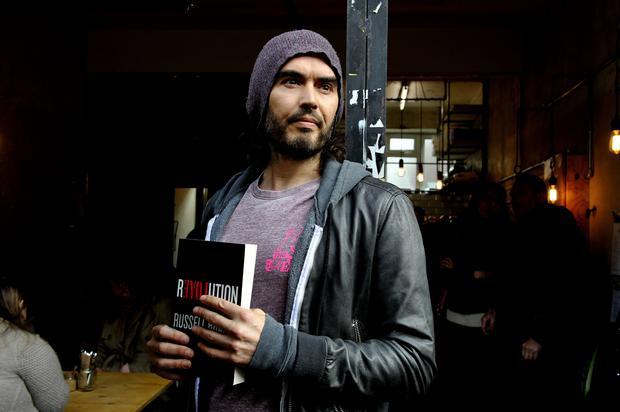Embracing Resurrection Life Amidst the Tension of Sin
John 11:25-26
Jesus said to her, "I am the resurrection and the life. The one who believes in me will live, even though they die; and whoever lives by believing in me will never die. Do you believe this?"
In the raw vulnerability of Martha’s grief, as her brother Lazarus lies dead, Jesus proclaims Himself the resurrection and the life, a beacon of hope that pierces the finality of death. This isn’t merely a future assurance; it’s an invitation to eternal life through belief, where physical death loses its ultimate power, and spiritual vitality begins now. A new nature is brought to life. Not an additional gift added to the old life. The old life is put to death. Sin no longer masters over you. You are no longer slaves to sin. This is the language of the New Testament and the hope of most every Christian. But is it reality?
The miracle of Lazarus' resurrection unfolds with profound symbolism: Lazarus emerges from the tomb alive, but still bound in his graveclothes, his face wrapped in cloth, and still carrying the stench of decay (John 11:44). Jesus commands, "Take off the graveclothes and let him go." Hold on to that thought for a minute.
Here is resurrection in its messy reality, new life granted, yet the remnants of death linger, needing to be unbound. This scene vividly illustrates the Christian tension of simul iustus et peccator, being at once righteous and a sinner. Through faith in Christ, we are declared righteous, infused with His resurrection power that defeats sin’s dominion. But like Lazarus, we step into this new life still wrapped up in the shrouds of our old nature: habits, temptations, and failures that cling to us. These "graveclothes" remind us of our ongoing battle, yet they don’t define our identity. Jesus calls us out, and into the community of believers, and through the Spirit, we are progressively loosed from them.
Our Justification in Jesus Christ's resurrection is forensic. In Christ, we are declared or reckoned to be righteous when God imputes the righteousness of His Son (an "alien righteousness" ) to our own account. Through faith in Christ, we are declared righteous, infused with His resurrection power that defeats sin’s dominion. This isn’t based on our merits but on Christ’s perfect obedience and victory over death, credited to us as if it were our own.
Okay, so once again these "graveclothes" remind us of our ongoing battle with sin, even following the regeneration of faith in Christ.
Building on this, it’s worth examining how some in the past have grappled with this tension, sometimes redefining the idea of sin in order to achieve in their minds a new "perfection" in Christ. Struggling with being justified while still a sinner, they sought to resolve the paradox by claiming sinless perfection in this life, often leading to innovative, and controversial, interpretations of holiness.
Many Christian communities have attempted to face this problem head on throughout the long history of the church. Too many to address in this devotion. So, I want to take a closer look at just some in particular. Notably the Wesleyan influenced people, Methodists, Church of the Nazarene, the Salvation Army, Pentecostal and Charismatic Churches. All who practiced what's known as, "eradication", or "entire sanctification,". Which stemmed from John Wesley’s teachings on Christian perfection during the 18th century and was amplified in the 19th-century Holiness Movement.
Believers in this tradition hold that, through a second work of grace after conversion, typically experienced instantaneously via the Holy Spirit, the inbred or carnal sin nature can be completely eradicated, leading to a state of perfect love where willful sin no longer occurs. However, to maintain this claim of perfection, some interpretations distinguished between willful sins and "infirmities" or "mistakes" (which are not considered true sin), effectively redefining sin’s scope in order to fit the experience of ongoing human frailty. It's like how some lawmakers today in certain Liberal political circles have redefined crimes in order to produce a statical semblance of a reduction in crime. But that's a different discussion for a different context.
One particular historical example comes from Oneida County, New York, (my hometown region) where the "Oneida Community" was established in 1848 by John Humphrey Noyes. Influenced by the revivalist teachings of Charles Grandison Finney, who emphasized Christian perfectionism during the Second Great Awakening, Noyes and his followers pursued a doctrine of Perfectionism. They believed that through union with God, believers could live entirely free from sin, creating a communal society where traditional notions of morality were redefined. This included practices like "complex marriage," where exclusive monogamy was seen as selfish and sinful, and all members were considered spiritually married to one another. In their view, such arrangements weren’t sinful but expressions of perfected love, allowing them to claim holiness while altering biblical standards to fit their ideals. These people were ahead of their time, the forerunners of hippie communes, and the "love the one your with" movement. Sin for them was only those things that were intentional, premeditated. They mainly just labeled these things as "temptations". And there have been modifications of these movements that still linger in many Christian traditions today.
These examples serve as cautionary tales: While the pursuit of holiness is biblical, attempting to escape the simul iustus et peccator reality by redefining sin can lead us astray from the grace that covers our imperfections.
Instead, Scripture urges us: Now we must consider ourselves dead to sin but alive to God in Christ Jesus.
Romans 6:11
"So you also must consider yourselves dead to sin and alive to God in Christ Jesus."
Think about this:
Lazarus didn’t return to the tomb; he walked free, though initially bound up in his stinking clothes. Similarly, our belief in the Resurrection and the Life empowers us to count sin’s enticements as irrelevant to our new reality.
And yet still the desire to grapple with sin's enticements remains. Reflecting further on this tension, we can consider the "no-lordship salvation" movement, also known as free grace theology, which emerged prominently in the late 20th century among some dispensationalist circles. This view posits that salvation is solely by grace through faith in Christ’s atoning work, without requiring repentance from sin, submission to Christ’s lordship, or any evidence of changed behavior as conditions for justification. You can make Jesus your Lord simply by saying it, without him being Lord over your life at all really. These people would argue that insisting on lordship adds works to faith, potentially confusing justification with sanctification and leading to assurance based on performance rather than the gospel promise. They maintain that true believers may live carnally, without fruit, yet remain saved, emphasizing eternal security.
There's another name for this, "easy believism", or as Bonhoeffer referred to it, "cheap grace". Which dilutes the gospel, allowing for a faith that doesn’t transform, and stands contrary to New Testament teachings on repentance and discipleship. In the context of Lazarus’ story, this movement highlights an effort to safeguard grace by sharply separating belief from obedience, but it may overlook the resurrection life’s call to unwind the graveclothes through active reckoning with sin’s powerlessness (working out our salvation). In other words, yes Lazarus is up and hopping around again, out from the grave, but he hasn't been unwrapped from his smelly burial rags.
Reflection:
We’re not just forgiven; we’re transformed, alive again to righteousness. When sin whispers, we declare it dead in us, choosing instead the vibrancy of life in Christ. That choice is the fruit of the Spirit.
What does this mean practically?
Identify those persistent "shrouds"; a recurring anger, holding grudges, unforgiveness, a hidden addiction, or a cycle of doubt, and reckon them powerless. Lean into the faith community to help unwind them, just as others aided Lazarus. Embrace disciplines like prayer and Scripture to reinforce your deadness to sin. And in moments of failure, remember: Your righteousness isn’t earned by perfection but secured by belief in Him who conquered the grave, through the imputed righteousness of Jesus Christ.
1 Corinthians 1:30
"And because of him you are in Christ Jesus, who became to us wisdom from God, righteousness and sanctification and redemption"
All at once, at the same time, you (when you believed and found faith) became "righteousness and sanctification and redemption" because of what He did, "because of him". You were washed, sanctified, justified, you can't separate these things. Both originate and stem from the same free grace of God. Jesus is the source, and both sanctification and justification come together in Christ Jesus. Anyone who is justified is likewise sanctified in Christ Jesus.
The moment justification comes is the same moment sanctification begins. Justification is an instantaneous complete work in Christ Jesus, and sanctification is an incomplete imperfect work lasting the rest of the believer's life, not complete, until glorification.
I'm going to make a claim:
You will sin, but you will be better.
As we age, are we growing in wisdom and therefore gaining a better sense of righteousness?
We're "getting better" at resisting sin, right?
I don't believe so. In fact, I think what really happens is we get a better understanding of our sin. We become more aware of it. We grow less fond of it. We hate it more. We feel worse about it. Part of being better is hating our sin more.
What does scripture say?
Proverbs 20:9
Who can say, "I have made my heart pure; I am clean from my sin"?
Answer: No one.
1 John 1:8-10
"If we say we have no sin, we deceive ourselves, and the truth is not in us. If we confess our sins, he is faithful and just to forgive us our sins and to cleanse us from all unrighteousness. If we say we have not sinned, we make him a liar, and his word is not in us."
Read that part again...
"If we say we have not sinned, we make him a liar, and his word is not in us."
That's pretty serious.
James 3:2a
"For we all stumble in many ways..."
Galatians 5:17
"For the desires of the flesh are against the Spirit, and the desires of the Spirit are against the flesh, for these are opposed to each other, to keep you from doing the things you want to do."
Even Paul understood that he could not eradicate himself from sin. He was a man in his Christian maturity who claimed to be the chief of sinners. But who also claimed to be sincere in his faith. Simultaneously righteous and sinful. He was the chief of sinners, and yet his conscience was clean.
Romans 7:14
"For we know that the law is spiritual, but I am of the flesh, sold under sin."
He also said he was delivered from slavery to sin. So, what happened?
How is he both?
Is Paul confused?
Maybe...
(vs.15) "For I do not understand my own actions. For I do not do what I want, but I do the very thing I hate."
This is the dilemma we all face.
(vs.17) "So now it is no longer I who do it, but sin that dwells within me."
This is a very very important point!
He loves God, agrees with the law, confesses that it's good, no longer wants to displease God, but SIN lives in his flesh.
He's saying...tying back to Lazarus, he's resurrected from the grave, the old man is dead, and the new creation is coming out of the grave.
He lives now in Christ's resurrection.
HE LIVES!
But he still stinks!
He is still permeated with the stench of his death which is sin.
(vs.18) "For I know that nothing good dwells in me, that is, in my flesh. For I have the desire to do what is right, but not the ability to carry it out."
Read that again: "that is, in my flesh."
Say it again.
"that is, in my flesh."
The part of us that has not yet been recreated in Christ.
(vs.19-20) "For I do not do the good I want, but the evil I do not want is what I keep on doing. Now if I do what I do not want, it is no longer I who do it, but sin that dwells within me."
Say it again: "it is no longer I who do it, but sin that dwells within me."
He has separated an entity living within his flesh. He is simultaneously a new man in Christ while remaining a sinful "flesh" man. Specifically, in "my flesh". Evil is present, residing within him. The new creation is the new inner man. But a different principle still exists in his members while the new man dwells within him. Paul makes a distinction. He's born of God with an incorruptible seed within him, and his flesh remains a slave to sin.
This is why we groan for the redemption of our bodies. Now we are a holy seed inside an unholy shell. We're incarcerated in a prison of our own sin which is our unredeemed flesh. We can't catapult ourselves out of these sinful skin bags with any works-based theology, or by redefining sin as some have tried. It's who we are until our glorification in Christ following our death.
We subject this body. We wrestle with it. We subdue it when we can. But we cannot ever be free from it, perfected in it, until we are glorified in our resurrection from death.
So, what does Paul mean when he says...
Romans 8:13
"For if you live according to the flesh you will die, but if by the Spirit you put to death the deeds of the body, you will live."
He's saying...
Believers "live by the Spirit". Believers "put to death the deeds of the body". Believers motify the body. Believers kill the sin that remains. Believers employ all the means of grace to make no provision for the flesh. Fighting it with a passion. Making it a lifelong commitment to be holy in every way possible. Intentionally making no room for sin. Dealing ruthlessly with sin. Putting it to death. Sparring no sin. Knowing that if we do not do this it will revive and plunder our life again and again. It's a lifelong struggle.
That's it...there's nothing more I can say. Go in peace and sin no more.
Prayer:
Lord Jesus, You are the Resurrection and the Life. I believe in You, revive my faith where it’s weak. Thank You for declaring me righteous through Your forensic justification, imputing Your alien righteousness to my account. Guard me from redefining sin to escape my struggles; instead, help me reckon myself dead to sin’s grip, putting the old life to death and embracing the new nature You’ve given. Unwrap the stinking graveclothes that still bind me through Your Spirit and Your people. Make me fully alive to You, no longer a slave to sin but free in Your grace. Amidst my sinfulness, affirm my righteousness, and let Your eternal life shine through. Amen.
















